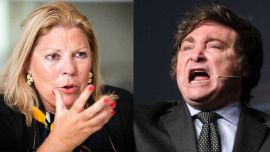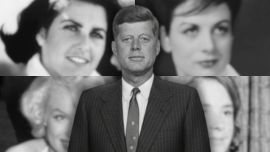The return of the International Monetary Fund to the top of Economy Minister Sergio Massa’s in-tray in the final week of the election campaign prior to the run-off has ruptured pre-arranged plans.
The IMF’s board had decided to drop out of the national economic cycle, boosting its stance for fresh negotiations with the next president-elect, but noise prompted them to change their minds. After playing the victim, the ruling party candidate decided to try and use it in his favour.
“The agreement reached after the PASO primary, which was not ideal, served to drop out of Argentina’s agenda until after the elections,” an IMF source admitted to Perfil,
After the remittance, a product of the approval of the targets of the second and third quarters, but the pact broke down with some sources pointing to Massa’s proclamation of an investigation by the creditor organisation due to the use of funds from the loan granted to the Mauricio Macri government. Others believe there was unease from the start.
“The investigation of the Office of Independent Evaluation was already known and linked to the exceptional use of anything on top of 200 percent of its quota, it was revealed to the Argentine programme,” explained Héctor Torres, a former Argentine representative with the IMF, in dialogue with Perfil.
He also maintained that the programme was “abused because the quota is not increased along with the nominal size of the economy or the financial needs of countries.”
“For that reason there are increasingly more exceptional programmes, which thus become increasingly less exceptional,” he underlined.
According to sources quoted by Reuters agency, there is no date in the IMF calendar for analysis of the targets in the seventh review to be carried out by a mission, concluding in financial assistance to repay the debt. A fleeting glance serves to show that this administration is far removed from the parameters established in the agreement with international reserves in crisis and public spending shooting up. Therein lie the main tensions of the IMF with Massa.
The minister and candidate has, in mind, the possibility of making the IMF a trending topic in the last week of the campaign before the run-off, given its bad image in this country due to its association with contemporary economic crises, permitting him to take his distance from complaints over fiscal austerity, devaluation and the collapse of economic activity due to the shutout of imports for national production, as pushed by the international organisation in recent negotiations.
The IMF knew about this, which is why they moved out of centre stage. “We want to take a holiday from Argentina but we’re always news,” a source in Washington lamented.
The positives and negatives Fund’s return to the electoral context must have been weighed by Massa. While it boosts his links with the sector of Kirchnerite hardliners, it could disturb the centre-right voters of Juntos por el Cambio from the general elections who might now be inclined to pick Unión por la Patria. That is the analysis of the campaign panel of Massa’s Frente Renovador party, which has the power to define the agenda of internal consensus.
The ruling coalition presidential candidate has managed to line up the sectors of industry and construction in the race for electoral support, lunching on Thursday with CICYP (Consejo Interamericano del Comercio y la Producción), including the UIA Argentine Industrial Union and Camarco among others, amid promises of a deeper productive plan and business hopes of a clearer financial future for the country in terms of its relations with the world.
They do not want any more short circuits such as the multiplication of private-sector commercial debt, given the lack of dollars to pay inputs.
“Between December and February the Treasury must pay out over US$6.2 billion, US$3.7 billion to the IMF plus over US$1.5 billion in government bonds (around half in the hands of the public sector) and US$1 billion owed to other international organisations and the París Club. A zoom of debt in foreign currency shows the government needing to face payments of over US$53 billion between 2024 and 2026 (excluding the bonds Letras Intransferibles and Letras en Garantía y Avales) or an annual average of over US$17.8 billion,” maintained the latest expert report from the Ecolatina consultancy firm.
The key is an agreement with the IMF because it would liberate the US$3.3 billion agreed for the rest of the year. Yet Economy Ministry sources consulted by Perfil have confirmed that Massa will use most of the yuans cleared by the expanded renewal of the currency swap with China to avoid new pressures from the Fund while awaiting the inflow of fresh dollars from the harvest, which will start to arrive in summer.
That is why there has only been a limited use of yuans by the Central Bank for exchange market interventions.
“Despite the recent expansion of the currency swap with China for some US$6.5 billion in mid-October, the yuans negotiated on the MAE (mercado abierto electrónico) market are at their lowest levels of 2023, barely a daily US$5 million, a figure well below the daily peaks of almost US$ 60 million registered in the months of June and July,” pointed out Ecolatina.






















Comments